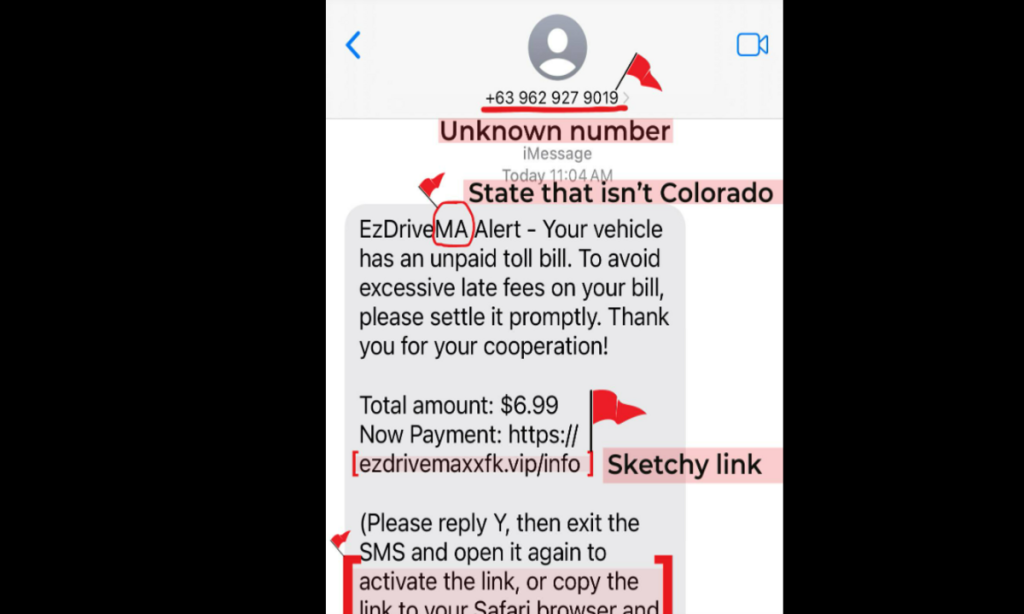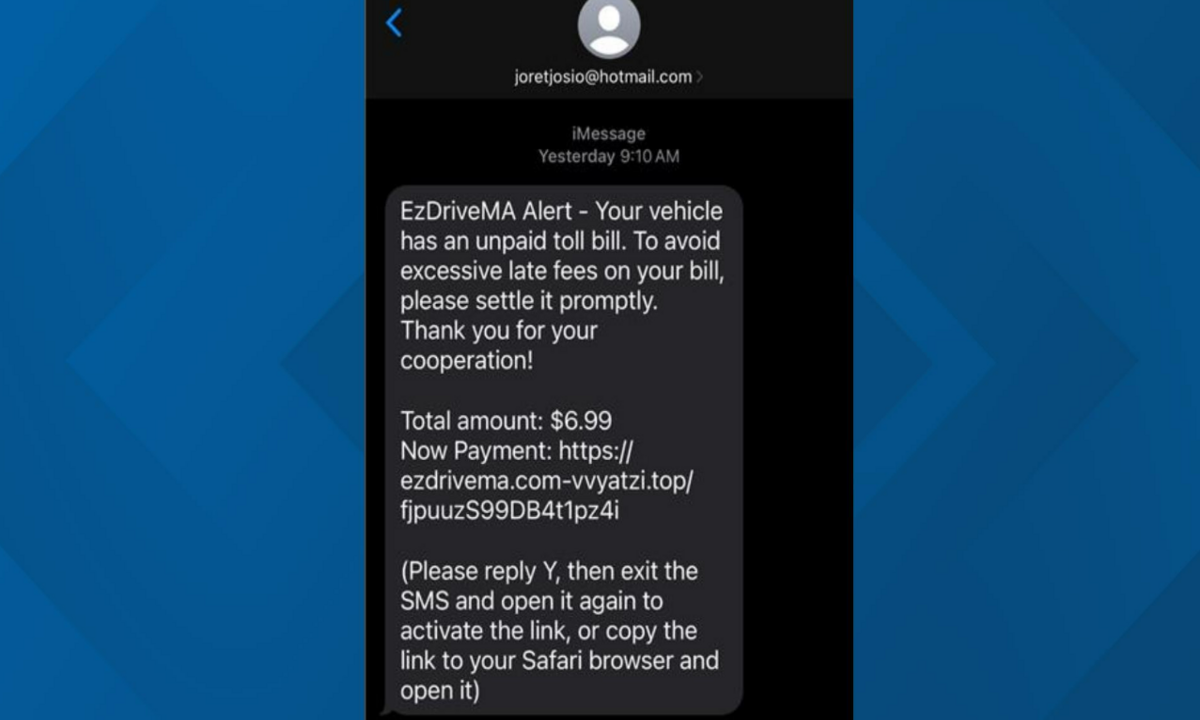If you live in Colorado, beware of a new scam circulating through text messages. A message claiming you owe an unpaid toll from “EZDriveMA”—the Massachusetts Department of Transportation’s toll system—has been flagged as fraudulent. This scam has already affected many people, prompting the Colorado Attorney General’s Office to issue a warning.
The Scam Explained
The scam works by sending text messages to random phone numbers, claiming the recipient has an outstanding toll payment. The message includes a link, supposedly leading to the payment portal. However, the Massachusetts Department of Transportation (MassDOT) has confirmed these texts are not legitimate and did not come from their office.
Jonathan Gulliver, MassDOT’s highway administrator, emphasized the widespread nature of this scam. “If you have a cell phone number, you can consider yourself affected,” he said. “If you haven’t received a text yet, it’s probably only a matter of time.”

What is Smishing?
This scam falls under a category known as “smishing,” which combines “SMS” (short message service) with “phishing.” Smishing involves sending fraudulent texts designed to trick recipients into revealing personal or financial information.
Dr. Steve Beaty, a computer science professor at MSU Denver, describes this scam as a “low-grade” smishing attempt. “We can see the origin URL and domain, and it’s an obvious smishing site,” he explained. However, not all scams are this easy to spot, making it crucial for people to stay vigilant.
Why You Shouldn’t Click
Clicking the link in the text can lead to serious consequences. In most cases, the link directs users to a fake website that asks for sensitive details, such as credit card information. Once you provide this information, scammers can use it for fraudulent activities, leaving you at risk of financial loss.
Dr. Beaty warns, “What’s at risk is these sites will pop up, and as soon as you enter your credit card number, it’s all over.”
A More Sophisticated Scam
This isn’t the first time Coloradans have been targeted by text scams. Recently, another scam used city logos and images to make a fake claim about unpaid parking tickets through Denver’s Department of Transportation and Infrastructure. The realistic appearance of these texts made them harder to identify as scams, prompting the agency to publicly clarify that the messages were fake.
Why Scams Work
According to Dr. Beaty, scams like these succeed because they exploit people’s fear and urgency. Messages often claim that failing to act quickly will result in fines or penalties, pressuring recipients into responding without thinking.
“People think, ‘I did park downtown,’ or ‘I did use that toll road,’” Beaty said. “The scammers count on this moment of uncertainty to make their move.”
How to Stay Safe
If you receive a suspicious text message like this, here are some tips to protect yourself:
Don’t Click Links: Avoid clicking any links in unsolicited text messages.
Verify the Claim: If you think the message might be legitimate, visit the official website of the organization directly or contact them through verified channels.
Report the Scam: Forward suspicious texts to the FBI’s Internet Crime Complaint Center or your local law enforcement agency.
Delete the Text: After reporting the scam, delete the message from your phone to avoid accidentally clicking on it later.
Dr. Beaty emphasizes slowing down and thinking critically before responding to any text message. “The short story is, don’t click on links in emails or texts,” he advised.
Smishing Scams Are Here to Stay
Unfortunately, smishing is not going away anytime soon. Scammers continuously adapt their tactics, creating new ways to trick people into revealing sensitive information.
“It’s like a game of chess,” Beaty said. “The scammers get better, we get better, and then they get better again. This back-and-forth will likely continue for the foreseeable future.”
FBI Involvement
The FBI is aware of the unpaid toll scam and has been tracking similar scams since March 2024. In just one month, the agency received more than 2,000 complaints about these fraudulent texts.
MassDOT urges anyone who receives the text to report it to the FBI and delete the message. Staying cautious and spreading awareness can help protect others from falling victim to these scams.
Final Thoughts
Scams like the unpaid toll text remind us how important it is to stay alert in today’s digital world. Always question unexpected messages, especially those asking for money or personal information. By being cautious and spreading awareness, we can protect ourselves and our communities from these deceptive schemes.
Disclaimer—Our team has checked this article to ensure its accuracy and eliminate any misinformation. We are committed to providing clear and reliable information for our readers.




